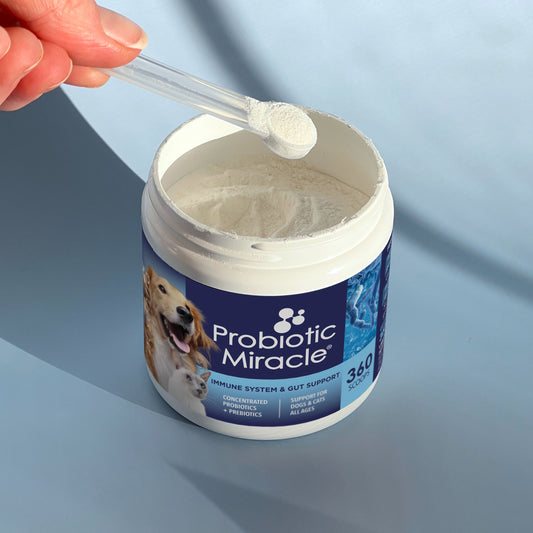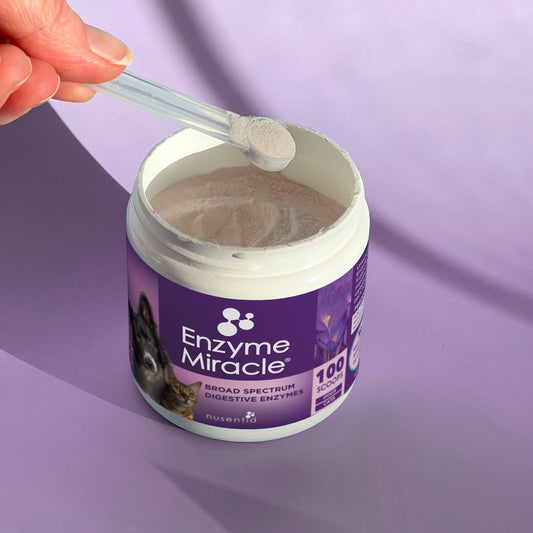

Collection: Acid Reflux (Gerd) in Dogs
Treating acid reflux in dogs with use of supplements is not always recommended. The jury is still out on if and when supplements can be used for canine acid reflux.
Summary
Probiotics are always a good idea for dogs with GERD. Provide 3 or 4 small meals instead of 1 or 2 larger meals, and minimize fiber from the diet.
Limit grains in the diet. Best case scenario is a grain-free diet, like Nusentia's Raw & Grain Free.
Some evidence shows that enzymes may work, while other information suggests that enzymes may slightly worsen the condition in some animals. Your vet will know whether enzymes are appropriate for your dog specifically.
HOW TO RECOGNIZE ACID REFLUX
-
Regurgitating of food (spitting up)
-
Evidence of pain when swallowing
-
Loss of appetite
-
Weight loss
Lifestyle Remedies
In acute care, it would be wise to implement the protocol for diet and exercise first. Feed smaller portions of meals, and remove grains from the diet. If that approach is unsuccessful, then one could try supplements (or the medications if prescribed by a vet). A common recommendation for GERD is Pepcid for dogs.
Prescription and Medical Remedies
Traditional treatment of GERD in dogs usually involves prescription medications. These medications are known to deplete nutrients in the body and gut flora during their use, but can be effective in treating the symptoms. In other cases, surgury could be recommended.
Supplementary care
When medications are prescribed, it is a good idea to provide a supplementary vitamin and mineral supplement as well, and definitely a probiotic to balance the nutrient depletion in the body.
Nutritional support products:
-
 Sale
SaleProbiotic Miracle®
Regular price From $25.95Regular priceUnit price / per$29.95Sale price From $25.95Sale -
 Sale
SaleEnzyme Miracle®
Regular price From $23.95Regular priceUnit price / per$25.95Sale price From $23.95Sale


